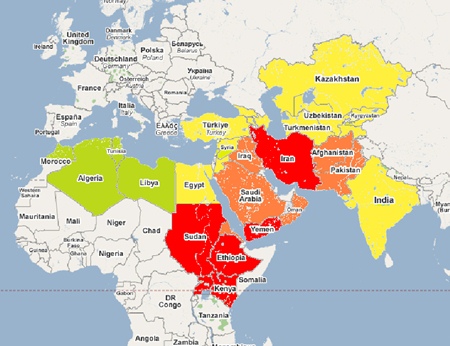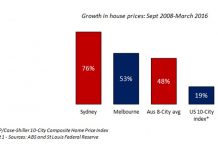Forget Greece, an acrimonious dispute over the origins of the bacterial disease that has claimed 16 lives in Northern Europe has worsened the already fragile relationship between Germany and Spain. Cucumbers grown in greenhouses in southern Spain were initially identified by German officials as the source of a deadly strain of the E.coli bacteria, believed to be behind an out outbreak of severe illness in North Germany.
The accusations, which were unproven and now appear unfounded according to the FT, have not only damaged the important Spanish and Dutch horticultural export industries but increased political strains! Spanish Ministers were incensed when Angela Merkel, the German Chancellor, suggested in a speech this month that people in countries such as Spain took too many holidays, did not work long enough hours and retired too early. The “cucumber crisis” has contributed to this sense of resentment as supermarkets have taken down signs insisting they have NO SPANISH PRODUCE or the Financial Times Deutschland wrote, “We are in a pickle” on Wednesday.
 Spread of Wheat Rust threatens over 25% of global wheat production.
Spread of Wheat Rust threatens over 25% of global wheat production.
Seriously though, the Political framework in Euroland is fragile at best. The peripheral countries of Greece, Ireland and Portugal are slow moving train wrecks and restructuring (default of some form) of their government debt, not band aid rescues, is required to remove uncertainty and allow all parties to be “equally unhappy”. As we have written many times in 2010, the debt to GDP ratios are getting worse with austerity and the sooner the default is handled the better it will be for investors in the long run.
The other more serious issue from the “cucumber crisis” is the increasing potential serious outbreak of a food disease epidemic. The American Novelist Barbara Kingsolver has recently written a book entitled, “Animal, Vegetable, Miracle” which is a true story about her family’s endeavour to eat only locally produced food for 12 months. One of the startling facts in the book for me is the risks involved in the genetic modification of seeds, to ensure foods can travel around the world for consumption, notwithstanding the effects on the oil price.
In a meeting with the Sarasin AgriSar fund manager last week he showed us the following chart which highlights how a Wheat Rust disease that started in Uganda has spread, with the lighter shaded areas now high to medium risk (see photo this page). Food has evolved over thousands of years to adapt to certain circumstances; the genetic modification of this process may also be putting a band aid over a long term problem for short term gain.
The “cucumber crisis” may not help the Europeans create a central finance ministry as proposed by Jean-Claude Trichet recently but will help the price of organic produce within his zone.
The above data and research was compiled from sources believed to be reliable. However, neither MBMG International Ltd nor its officers can accept any liability for any errors or omissions in the above article nor bear any responsibility for any losses achieved as a result of any actions taken or not taken as a consequence of reading the above article. For more information please contact Graham Macdonald on [email protected]




